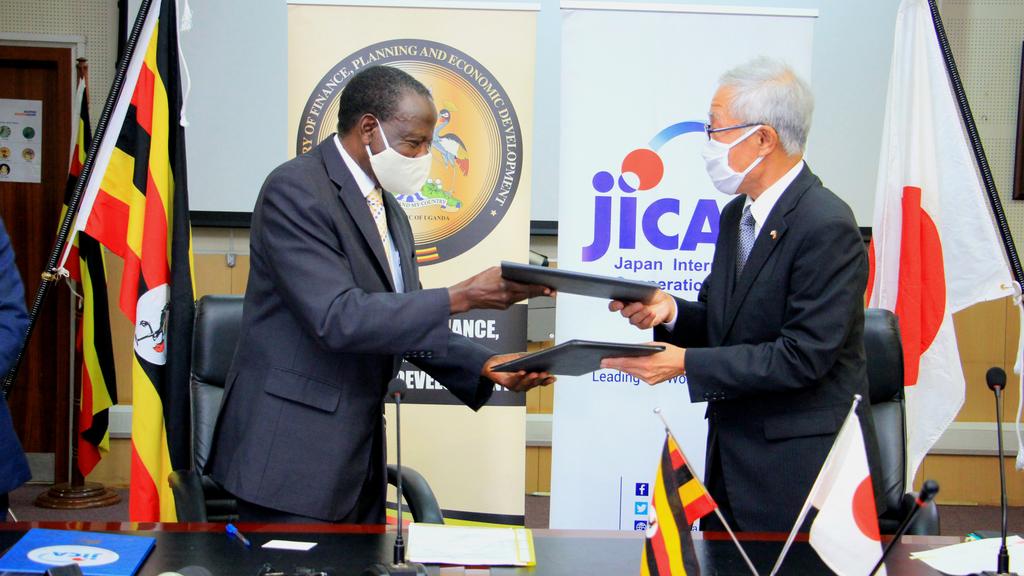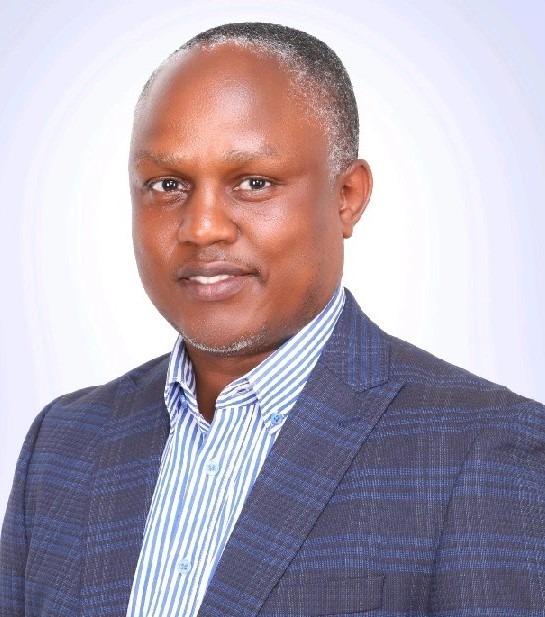President Yoweri Museveni has come out to direct on the increasing role that the country’s military should have in undertaking public engineering and construction projects. However, the local construction industry actors are up in arms, arguing that the decision will disadvantage the budding local private sector players by draining it of the little capacity and resources that Government itself has, over the past few years, been building.
On July 1st (2021), President Museveni wrote to the Ministers of Education & Sports and of Health, Janet Museveni and Jane Ruth Aceng, respectively, directing them to award any new construction projects in their sectors to the Army Engineering & Construction Brigade.
“This is …to direct that with effect from FY 2021/22, all new construction projects for health facilities and schools must be undertaken by the Army Construction Brigade, as a pilot. This directive will be gradually extended to cover other sectors of the Government,” President Museveni wrote.
Local contractors have since turned to the media to cry out arguing that if this directive is executed, many local contractors will lose contract opportunities as the small and medium level local construction companies have mainly benefitted and gained business by undertaking such simple, small and medium level projects like construction of school buildings, health facilities, etc. The big and more complex construction projects like roads, bridges, dams have mainly been awarded to the big capacity international companies.
The Infrastructure Magazine understands that the President’s directive comes out of persistent frustration from private sector companies’ poor delivery of government projects.
The President’s frustration, we understand, originates from delays in procurement occasioned by an inflexible procurement law (that is heavy on fighting corruption, but light on time consciousness in delivering projects), protracted procurements mostly caused by (sometimes malicious) incessant judicial reviews filed by dissatisfied bidders which drag the procurement process for years. As a result, generally public projects overshoot their delivery timelines, which, in most instances, cost government more money and delays in delivery of infrastructure promised to the population.
The other factors that have frustrated the President on delivery of public infrastructure is the issue of costs. Private sector players have most of the time quoted higher costs to deliver public projects – sometimes as high as four times the actual cost. There are also issues of poor quality of buildings and other infrastructure. There have been instances when school and health facility buildings, toilets constructed by private sector companies have collapsed even before they are occupied. In some instances, they have necessitated repair before first occupation. All of these make the government look shabby and unable to deliver even the simplest of construction projects.
In November last year, while officiating at the inauguration of the new Special Forces Command Headquarters (The Yoweri K. Museveni House) in Entebbe, the President commended the UPDF for doing a magnificent job at one third of the price quoted by a private sector company.
“With the private contractors, you could have spent three times more instead of Shs3.48 billion that has been used,” a report on the State House website quoted President Museveni as saying, at the time. A private sector company had quoted Shs 9 billion for the same job.
The same report also quoted the president as saying, “(the private) contractors take up construction projects without having cash in hand. They borrow money from commercial banks at a high interest rate, pay VAT at 18 per cent, they lack the means of transport for materials. These hike costs to above 70 per cent of the normal bill”
Justifying his decision to award government construction projects to the Army construction unit, the President said the Army had built its capacity and experience and has over time undertaken projects from simple to complex ones, and have made the country savings (in time and money).
Eng. Dr. Isaac Mutenyo, the chairperson of the Engineers Registration Board in Uganda said there is no problem with UPDF coming into the construction sector as a player as long as they can marshal the requite engineering expertise and capacity.
“There is no problem with UPDF engaging with construction projects and as the engineering fraternity we look forward to discussing more and working together. However, the UPDF has less than 10 Registered Engineers and there will be a challenge in supervising the numerous projects across the Country. The Ministry of Health and the Ministry of Education & Sports need to take note of that and look for a solution,” he said.
“The engineering fraternity/architects and other associated professional bodies need to come together and advise the government accordingly on how best to implement this Presidential directive.”
The local contractors are however arguing that the move to reserve small and mid-size construction projects for the Army will kill the capacity of the local private players – a good that Government itself has been investing in. They also argue that the local civilian construction industry employs thousands of young Ugandans who are likely to be laid off into redundancy. They say, this will increase the country’s already bad situation of unemployment amongst young people which could cause ripple effects in the country socially, economically and politically. They also argue that the construction sector is one of the biggest tax payers. Starving local companies of projects will result into a dip in tax collections from the sector, which will affect government revenues.
The Uganda National Association of Building and Civil Engineering Contractors (UNBACEC) said the decision is ill-advised and hope that the President’s directive will be reversed. “We believe that (President Museveni) was ill-advised by imperial lobbyists with selfish interests. This move if implemented will spell further disaster for the thousands of citizens employed by the private sector and have negative ripple effects on an already ailing economy.”
James Olonya, the President UNABCEC said, ““I trust the President’s good judgement, as his leadership has demonstrated his heart for the nation. However, from face value this (directive) defeats all logic and the principal function of the military and the principle of “Private Sector Led Economy.”
The decision has however attracted support amongst some members of the public. Cedric Babu Ndilima, a former MP aspirant for Kampala central constituency said, “Brilliant from President Museveni. Efficiency of engineering brigade & discipline in the UPDF will serve the construction industry well especially with regards to government projects. Reduced capital flight, low construction costs, abiding by timelines will go a long way in Uganda’s development.”
Eng. Charles Muhigirwa, the managing director of Damude Technical Services, a local contractor, was in support of the president’s directive: “(UNABCEC) are concentrating on the symptoms not the root causes of (President Museveni’s) action. 380 schools were supposed to be constructed in sub counties around the country by your members, contractors. Do they follow progress to know compliance or failure? UNABCEC (should) do more than lamenting,” he said.
Another engineer and contractor, Stewart Elvis Ndemeere held a different view: “The President’s directive is a correct medication for a wrong diagnosis. The Army Engineering brigade is welcome to business but as a descent competitor not as a privileged child . There are other ways of cleaning up if the President got in touch with the right actors.”
A senior army officer who we spoke to us, on condition of anonymity because he doesn’t officially speak for the forces told The Infrastructure that all over the world, the national armies are connected to engineering and construction – and that armies have delivered key infrastructure projects for their countries around the world.
“In fact engineering originally started as a military discipline. Civil engineering is a child of military engineering,” he said, arguing that engineering has always been part of military work as it is required both in combat and in strategic operations to support combat like construction of roads, airfields, fortifications, camouflage, demolitions, etc.
He pointed The Infrastructure Magazine to countries like Egypt where the military is a key player in construction (and the economy generally) and have delivered major infrastructure like the Cairo-Alexandria dessert road, Cairo-Asyut, Cair-Ismalia roads, among others including housing, water systems, etc. In Papua New Guinea, the military has been used to deal with the same problems as President Museveni advances. In China, construction and engineering is part of the military defence system, among others.
He also said that because of the skills people get in the military like can-do attitude, discipline, team work, flexibility, grit, problem-solving and working under pressure, construction work is the natural go-to occupation for ex-servicemen. He told us that in some countries there are construction and engineering companies that look out specifically for ex-servicemen to employ. In the UK companies like Build Force, Willmott Dixon, Vinci Construction specifically look out for former solders to employ because of their skill, attitude and experience.
In Uganda, however, Government has been openly focussed on developing capacity of the private sector to undertake construction works under the country’s private sector-led economy model. Both the current Minister of Works & Transport, Gen. Katumba Wamala and the Executive Director of UNRA, Allen Kagina, are ardent supporters of developing “local content” in the construction sector.
Recently, the Uganda National Roads Authority signed a memorandum of understanding with NEC, the UPDF engineering unit, to undertake works on a chunk of three projects: Civil works for the 4km access road to the Children’s Surgical Hospital in Entebbe, rehabilitation of the 62 km Olwiyo-Pakwach road and mechanized maintenance of 124 km of various roads in Kyankwanzi and Kalangala districts.
The Authority said it is Government policy “to promote local construction capacity and government has put in place a framework to ensure that local contractors are developed and can participate in national road development programmes. “The Public Procurement and Disposal of Public Assets Authority (PPDA) regulations provide for promotion of local content and requires that entities reserve work for local companies.”
(The picture is this story has been changed for better visibility and share-ability. We thank the readers who brought this to our attention- Editor)
The Infrastructure Magazine: Depth, Context, Insight, Perspective,
See also an opinion by a Ugandan Engineer here













